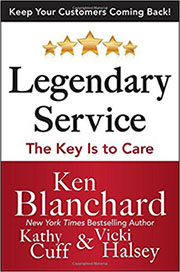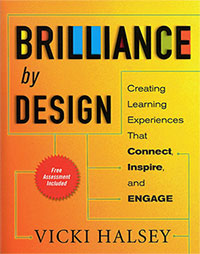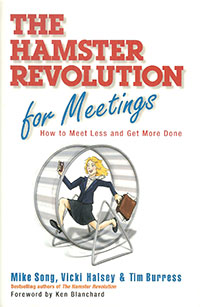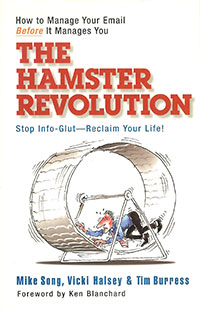 The last few weeks I’ve been focused on hiring a new team member. Although time-consuming and laborious, it’s one of the most important things I do and is one responsibility a leader can’t delegate.
The last few weeks I’ve been focused on hiring a new team member. Although time-consuming and laborious, it’s one of the most important things I do and is one responsibility a leader can’t delegate.
I have two main goals when conducting an interview: 1) Assess the candidate’s skills and abilities to do the job, and 2) gauge the candidate’s personality, attitude, values, and beliefs to determine if she will be a culture fit. (And not necessarily in that priority order. I would rather hire someone who is a good culture fit that has the aptitude to learn the job, than hire someone with great technical skills who is a bad culture fit. The culture will chew them up and spit them out every time, meanwhile, your life will be miserable managing the person and the fallout created.)
I try to accomplish the first goal through behavioral interviewing. Over the years, my leadership team and I have honed in on a list of behavioral interview statements/questions that align with the key competencies of the position for which we’re hiring. We look for specific accomplishments from the candidate that demonstrate she has the relevant transferable skills that will likely make her a success on our team.
For the second goal—to determine if the candidate will be a culture fit—I ask questions designed to get below the surface. I want to move beyond the standard, interview response clichés, and get to know the candidate on a more personal level. I want to learn about her motivators, demotivators, personality, and instinctive responses to the highs and lows of the job. In order to do that, we’ve come up with some slightly off-beat questions. Granted, you can only learn so much about a person in an interview, but we’ve found these questions to be pretty insightful. Feel free to use them at your own risk!
- Tell me your story. This is probably the most generic of the questions we ask, but it’s helpful to get to know the candidate on a personal level. Asking the question in this way leaves the candidate wide latitude in what she shares, which I find telling in regards to her level of vulnerability. Does she talk about her family or just herself? Does she include any personal information or does she keep it focused on her career?
- Let’s play a word association game! This is actually multiple questions wrapped up in one. We have chosen several key words that relate to different aspects of our culture, organization, and the job itself. We ask the candidate to share her first response upon hearing the key word, and then we ask her to expand on her answer. The rapid fire nature of this question and answer exchange helps us assess the candidate’s instinctive response and thoughts to the word/situation at hand.
- What is the biggest misconception people have about you? This question is designed to probe the candidate’s level of self-awareness and her willingness to be honest and vulnerable. The first impression we have of someone can often be a misconception, and I’m interested in knowing if the candidate has enough self-awareness to understand and manage the way she is perceived by others.
- What do you not want to be doing in five years? Rather than asking the standard “What are your goals over the next five years?” question, we flip it around and ask what the candidate doesn’t want to be doing. It gives insight into the type of work or environment that will be demotivating to the individual.
- What are three words your coworkers would use to describe you? Whether we realize it or not, each of us has a brand image at work. I’m interested in knowing if the candidate is aware of her brand image, as perceived by others, and if it’s a positive one.
- What are your biggest pet peeves at work? It’s amazing how revealing people will be when you ask this question. Their eyes will light up and they’ll rattle off several things that get under their skin. If those irritants are common in your workplace, you’ve just received a heads-up that this particular candidate may experience extreme frustration in the job.
- Who are your biggest role models in life? This question gives me insight into the candidate’s upbringing and values system. Does the candidate have positive role models? Does she credit other people with helping her along the way or is she self-focused? This question can open many doors of conversation in the interview that allow you to learn more about the candidate.
- Why should we not hire you? I want to see if the candidate has a realistic view of their skills and abilities in relation to the job requirements. Seldom is there a perfect job candidate and I want to see if she is authentic enough to admit she still has some areas of growth.
- What would your biggest critic say about you? We’ve all received negative feedback from time to time. This question probes the candidate’s level of self-awareness to see if she is vulnerable and authentic enough to admit it and to help me understand how she has dealt with it.
- What is your biggest regret? If you couldn’t tell already, I’m really interested in getting to know the candidate deeper than surface level niceties. A genuine, heartfelt response to this question often tells me more about the candidate’s character and maturity than any other question we ask.
There you go, ten awesome interview questions to help you really get to know your job candidates. Feel free to leave a comment and share your own awesome interview questions.






